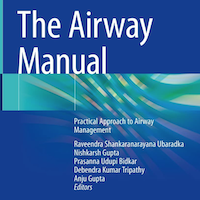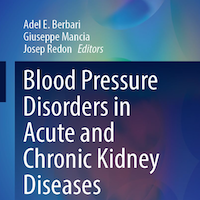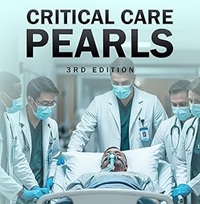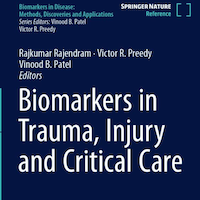Tag: study
Precision at Scale: Automating the SOFA Score for Smarter ICU Care
The Sequential Organ Failure Assessment (SOFA) score is a vital tool for diagnosing sepsis and predicting patient outcomes in the ICU, but its manual calculation is often plagued by human error and scalability issues. To... read more
COVID-19 in the Air: The Hidden Viral Footprint in Hospital Waiting Rooms
New research from the Kirby Institute reveals that COVID-19 genetic material is frequently present in hospital air during community outbreaks, even in facilities with high-quality ventilation. By sampling air and surfaces... read more
Power to the Patient: Rethinking Pain Control in the ICU
This scoping review of 12 relevant studies suggests that Patient-Controlled Analgesia (PCA) offers a promising path toward faster and more stable pain management for ICU patients. By allowing patients to self-administer small... read more
Life After the Pump: Quality of Life in Cardiac Surgery Survivors
Researchers have conducted a major study—the largest of its kind for this specific population—investigating the long-term quality of life (QoL) for patients who survived post-cardiotomy cardiogenic shock (PC-CS). By... read more
The Kidney Crisis: Acute Injury as a Predictor of ICU Survival
This extensive population-level study from Ontario, Canada, analyzed over 480,000 adult ICU admissions to clarify the relationship between Acute Kidney Injury (AKI) and patient outcomes. By utilizing outpatient baseline data... read more
Predicting Sepsis-associated Encephalopathy in Septic ICU Patients with AKI
Researchers developed a simple, interpretable nomogram to predict sepsis-associated encephalopathy (SAE) on day 1 in septic ICU patients who also have acute kidney injury (AKI), using data from the large MIMIC-IV database... read more
Corrected Serum Calcium Levels Predict 28-Day Death Risk in Sepsis
In a large cohort study utilizing data from 7,627 sepsis patients in the eICU Collaborative Research Database, researchers uncovered a clear U-shaped relationship between corrected serum calcium (sCa) levels and 28-day mortality.... read more
Neostigmine’s Anti-Inflammatory Edge: Cholinergic Boost Slashes Cytokines, Organ Failure, and Mortality in Septic Shock
In a randomized controlled trial, researchers investigated the adjuvant use of continuous neostigmine infusion (0.2 mg/hr for 5 days) in patients with septic shock, leveraging its ability to enhance vagal cholinergic anti-inflammatory... read more
The Pressure to Survive: Why Peak BP Matters for the Oldest ICU Patients
This binational cohort study analyzed 219 patients aged 90 and older who were admitted to the ICU following an in-hospital cardiac arrest. While clinical focus often shifts to average or minimum blood pressure, this research... read more
The Dangerous Duo: How Delirium Compounds Risks in Acute Kidney Injury
This systematic review and meta-analysis of over 158,000 critically ill patients reveals a significant link between Acute Kidney Injury (AKI) and delirium, affecting approximately 32% of patients with AKI. The study found... read more
Less Steroids, Better Outcomes: High-Dose Corticosteroids Harm ICU COPD Patients
A large pharmacoepidemiologic cohort study of over 17,000 US patients admitted directly to ICUs for acute exacerbations of COPD revealed that two-thirds received high-dose systemic corticosteroids (>240 mg/day methylprednisolone... read more
Vasopressin vs. Norepinephrine in Neonatal Septic Shock
A retrospective multi-center study analyzed the use of vasopressin (VA) and norepinephrine (NE), two distinct pressors, in 58 neonates with warm septic shock across three Canadian Level-III NICUs between 2015 and 2020. The... read more
Taming the Physiologically Difficult Airway: Safer Intubation in Critically Ill Adults
Tracheal intubation is a frequent and high-risk procedure in critically ill adults, with a global study of nearly 3,000 patients revealing major peri-intubation adverse events in 45% of cases—primarily cardiovascular collapse... read more
Sodium Levels and Sepsis-Related Liver Injury: A Threshold Effect
A retrospective cross-sectional study utilizing data from the MIMIC-IV database explored the relationship between serum sodium (SNa) levels and the risk of Sepsis-Related Liver Injury (SRLI) in 11,809 adult ICU patients with... read more
Triumph Over Sepsis: Dramatic Mortality Decline in ANZ ICUs, With a Post-2020 Rebound
In a comprehensive analysis of over 2.9 million ICU admissions across 219 Australian and New Zealand intensive care units from 2000 to mid-2023, in-hospital mortality for adult patients with sepsis (per Sepsis-3 criteria)... read more
Oral Levothyroxine: A Life-Saving Alternative for Myxedema Crisis
An observational study analyzing 12 adult patients (median age 66, 50% female) diagnosed with myxedema coma at a tertiary center between 2011 and 2021 highlights the efficacy of high-dose oral levothyroxine as a viable treatment,... read more
Beyond the Basics: New Respiratory Markers Predict Extubation Failure
A multicenter study focused on high-risk patients who successfully passed a conventional 30-minute Spontaneous Breathing Trial (SBT) found that standard measures alone are insufficient to predict extubation failure. Extubation... read more
Cost-Effective Care: Pantoprazole Saves Lives and Dollars in the ICU
A groundbreaking study spearheaded by researchers at McMaster University has confirmed that the widespread use of the inexpensive medication pantoprazole not only prevents life-threatening upper gastrointestinal (GI) bleeding... read more
Breadth of Antibiotics Trumps Dose and Duration in Driving ICU Superbugs
In a large prospective cohort study across four ICUs (422 patients enrolled from March 2024 to January 2025), 35.8% of patients acquired carbapenem-resistant Gram-negative bacteria (CR-GNB) during their stay. Using sophisticated... read more
Superbugs Are Winning – Time to Fight Back with the Four-Pillar Plan
The relentless global surge in multidrug-resistant (MDR) infections, vividly illustrated by high rates of carbapenem-resistant Acinetobacter in Western Romania and echoed worldwide, is outpacing outdated diagnostic and treatment... read more
Predicting Sepsis Mortality: The Power of NLR and PCT Clearance
A retrospective cohort study analyzed the dynamic changes of several inflammatory biomarkers to predict mortality in 64 Intensive Care Unit (ICU) patients diagnosed with sepsis. The study, which collected clinical and... read more
Less Sedation, Shorter Stays: The Benefit of Analgesia-Based Protocols
A retrospective study conducted in a 24-bed medical Intensive Care Unit (ICU) compared patient outcomes before and after implementing a new analgesia-based sedation protocol. The research included 79 patients managed... read more









